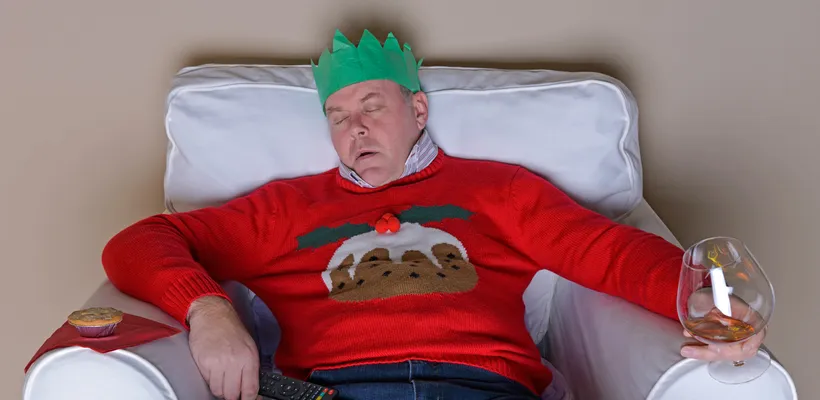
Published: 2nd December, 2018 in: Health Advice News
At Christmas many people like to have a drink or three to celebrate the day and to toast their loved ones. Where it may be fun at the time, over-drinking at Christmas can lead to many situations which could put a dampener on your day. With this being said, there are many questions often surrounding alcohol and it's safety. You shouldn't be letting alcohol consumption ruin yours, or anyone else's sleep; so here are a few tips as to avoiding alcohol induced snoring this festive season.
The NHS recommend that you do not drink more than 14 units of alcohol a week on a regular basis (spread over multiple days). 14 units is roughly equivalent to 6 pints of average-strength beer, or 10 small glasses of wine. If you want to learn more about how many units you may be consuming this Christmas then check out the NHS page on calculating units HERE.
Although there may be many opportunities to celebrate with a drink, around Christmas time, it is important that you do not overindulge. Binge drinking can lead to accident, injury, loss of possessions, violent behaviour, disrupted sleep, as well as many other things no body wants to go through, especially at Christmas time.
Alcohol will cause changes to the amount of time your body is in the REM and NREM stages of sleep; you will spend less time in the deeper REM stages of the sleep cycle, and more in the lighter NREM stage in which your muscles are more active. As this is the case you end up waking up less refreshed. Alcohol also relaxes your muscles, so when it comes to sleeping, your palate, tongue, and airways are all relaxed. This means that vibrations which cause snoring are more likely.
Christmas is a stressful time, so getting a good night's sleep is important to ensure you are functioning at your best every day. Snoring can not only affect your own sleep but also your partner's, so let's look at some ways we can ease snoring.
You could try Breathright Nasal Strips which gently open your nasal passages allowing you to breath through your nose rather than your mouth, helping to prevent the vibrations which can occur after drinking.